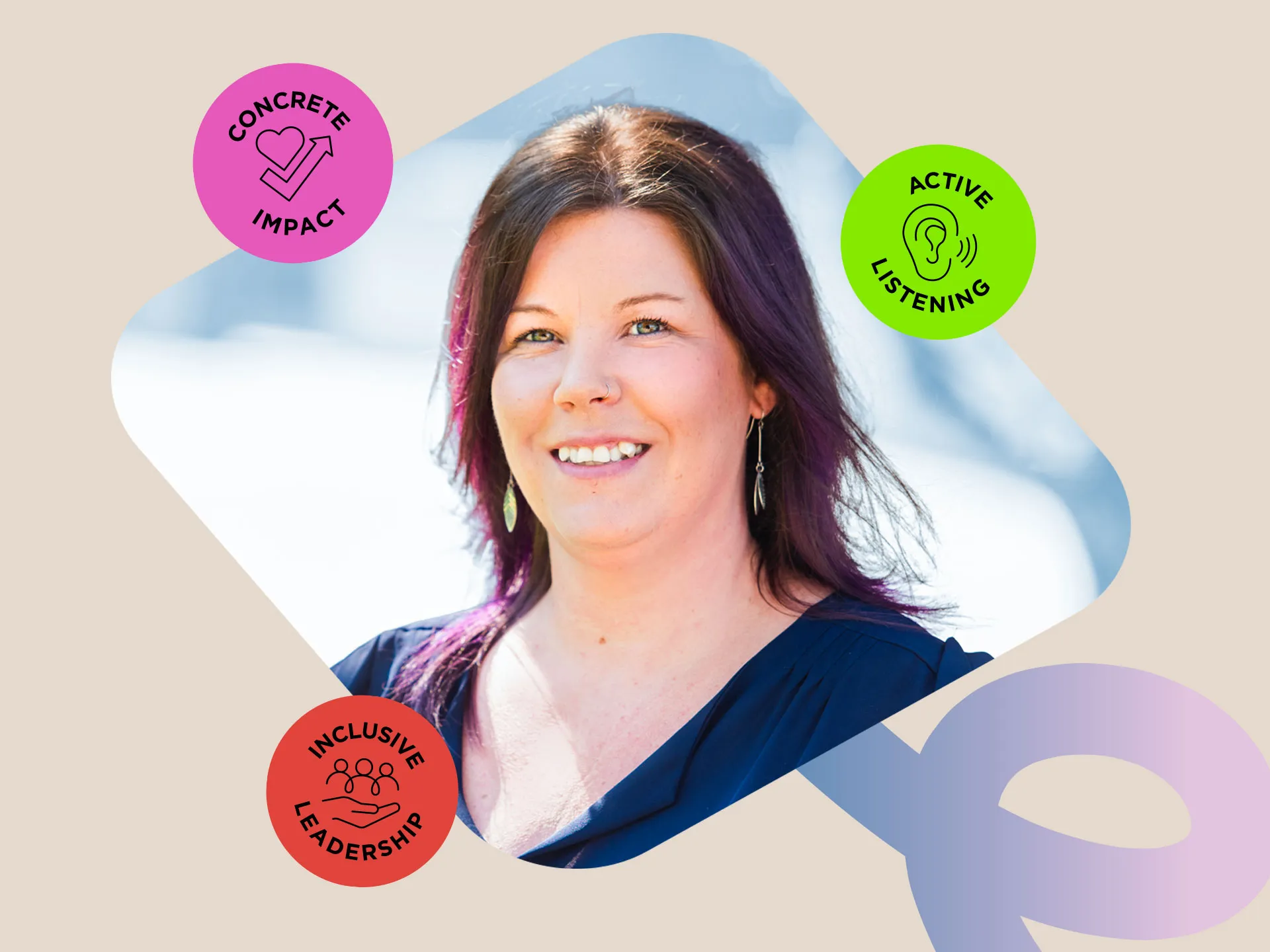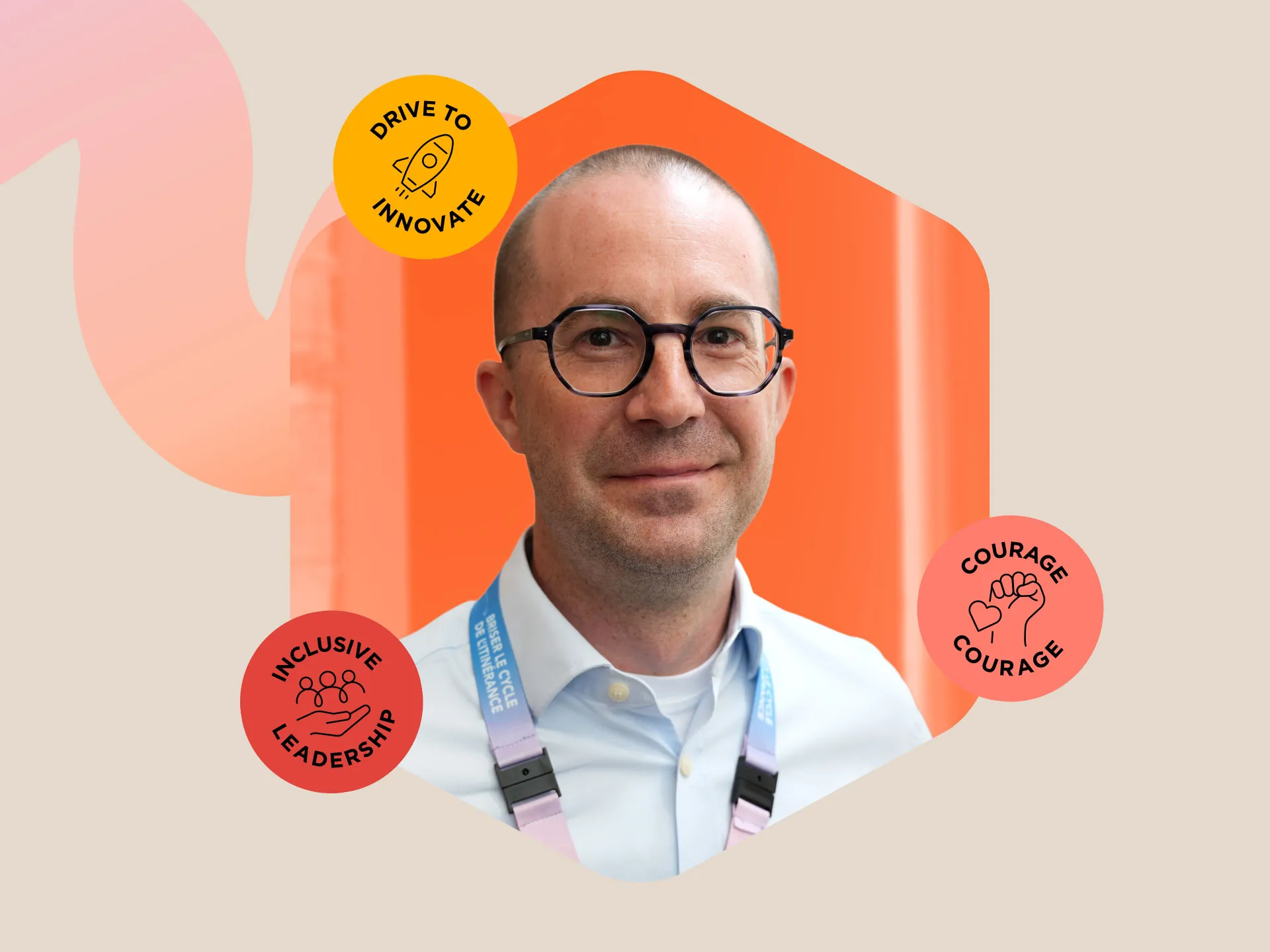
Meet Marie Henninger, Liaison Coordinator for Prevention and Housing Support Services

When she arrived in Quebec in 2018, Marie wanted to work with marginalized populations.
So she applied for a position as an intervention counselor in the housing support services team at the Old Brewery Mission — her first job in Quebec, which she has never left!
As her expertise and role in our organization are highly relevant to our month on homelessness prevention, we sat down with her to ask her a few questions.
What is your position at the Old Brewery Mission, and what makes it special?
For the past year, I’ve held the position of Prevention Liaison Coordinator – Housing Support Services. In the Housing Support Services (SSL) team, my role is team leader of Projet Logement Montréal, whose goal is to stabilize housing for people experiencing chronic homelessness.
In the prevention team, our aim i to act as far upstream as possible to prevent people from becoming homeless and ending up in emergency services. It’s a real change in approach, because we don’t treat homelessness, we try to prevent it from occurring in the first place.
What’s special about my job is that it’s ” inter-service “: I feel a real sense of belonging to both the SSL and the Prevention services. Because of my role at SSL, I have an overview of the Old Brewery Mission’s housing projects, the available units and their access criteria. I’ve been working in this department for several years now, and I’m familiar with the realities of the housing support intervention teams and their daily challenges in maintaining residents’ residential stability. Thanks to this liaison position, I help facilitate communication between the two departments, and information is passed on quickly, enabling us to act quicly when it comes to housing placements.
What kind of support do you offer people at risk of homelessness who are looking for stable housing?
Psychosocial support focuses on referral, assessment and orientation. We are housing access “facilitators”. We identify people through the various partnerships we’ve developed with organizations that work with individuals at risk of homelessness (I in the contexts of correctional facilities, evictions, drug use, immigration, etc.), and we seek to accompany them towards housing.
To do this, we develop a housing network that not only enables us to place people quickly, but also in housing that is adapted to their needs, criteria and preferences. Ultimately, it’s a matching service between people at risk of homelessness and housing of all types in the community (non-profit, private market rentals, social housing). Thanks to the targeted actions of the prevention intervention team and their responsiveness, we have received over 115 referrals from our partner organizations to date, and have succeeded in finding solutions for 48% of these people, meaning that they have either been settled in housing or accepted into a program and are in the process of moving in.
What is the process for referrals?
We have created a prevention referral form. Based on the information provided, we assess the person’s needs and verify the criteria for access to various subsidized or non-subsidized housing options. A prevention worker is assigned to guide the person towards housing or a program suited to their situation. In other words, to find the best possible “match” for each individual. The aim is not only to help the person avoid the shelter system and trauma associated with homelessness, but also to help them find residential stability.
What are the main challenges you face?
Our first challenge is time. We always have a limited window of opportunity to avoid the emergency shelter service. So we look for every possible option for the person, sometimes it’s a real race against the clock.
Another challenge we’re noticing with the housing crisis is that the risk of homelessness is taking on new faces: more and more couples, households with children or asylum seekers whose administrative situation prevents them from accessing subsidized housing. It remains difficult to find programs for these populations, so our aim is to find innovate solutions to housing people.
Dernières nouvelles
-
 Meet Jacinthe Corbin, Director of Housing Support Services
Meet Jacinthe Corbin, Director of Housing Support Services -
 The Old Brewery Mission and TELUS Health for Good launch second mobile
The Old Brewery Mission and TELUS Health for Good launch second mobile -
 Homelessness in the downtown core: We must house, care and innovate
Homelessness in the downtown core: We must house, care and innovate -
 Meet Jean-François Dagenais, Vice President of Finance, IT and Facilities
Meet Jean-François Dagenais, Vice President of Finance, IT and Facilities -
 Old Brewery Mission unveils new employer brand
Old Brewery Mission unveils new employer brand - See all news